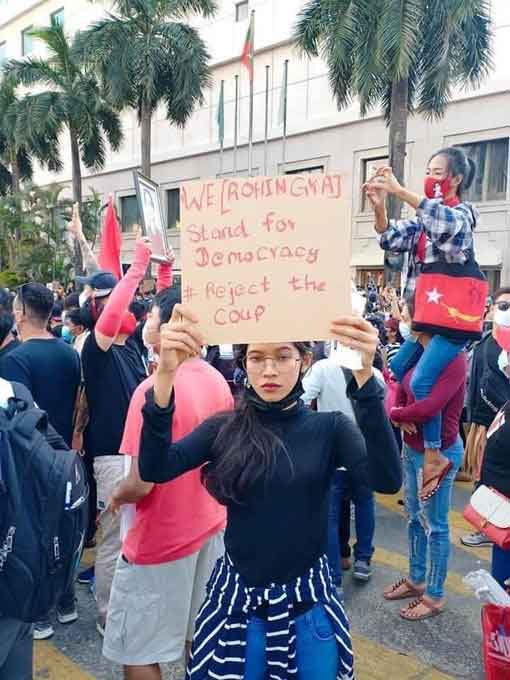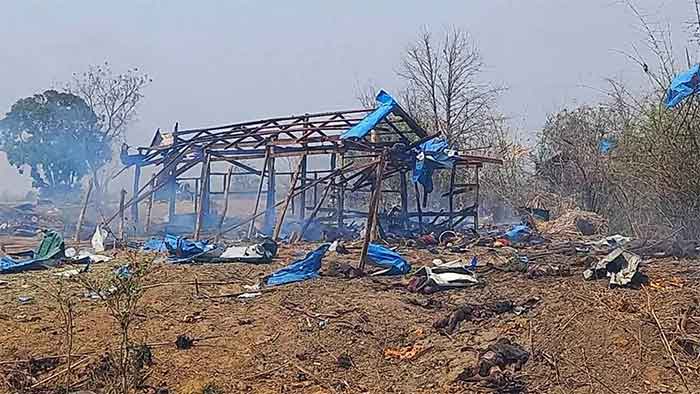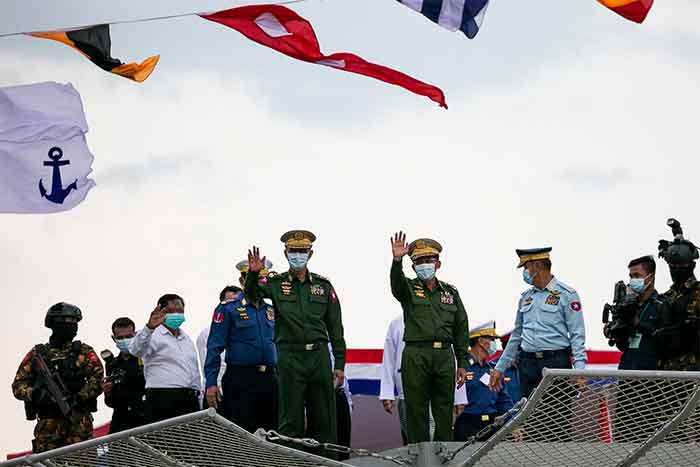
The deeply worrying crackdown in Myanmar is seen at present more commonly as an attack on basic democratic processes as the military junta seems intent on denying legitimate governance to those forces which have won very convincing victory in recent elections. However if early resolution of this confrontation does not emerge, and this appears unlikely in view of both the cruelty of the crackdown and the determination of people to oppose this, then a wider and serious humanitarian crisis can also emerge .Caution demands that such possibilities are taken into consideration at an early stage.
A humanitarian crisis is generally seen in terms of people being denied essential needs like food, medicine and basic health services to an abnormal extent and for longer period in conditions of internal or external conflict and/or other disaster situations. Is such a situation possible in the coming months in Myanmar?
There are some positive aspects of Myanmar which may help the country to avoid such an adverse situation and let us look at these positive aspects first. Myanmar has been generally seen as a food exporting country which is often assumed to be a food surplus country. In particular Myanmar has been able to export considerable quantities of its main food rice. In addition it has considerable supplies of oil and gas. It can also earn much from export of gems , rubies, jade etc. As agriculture is a basic source of livelihood, there is a broad base for providing food.
However having noted these assets it is important to add that despite these a humanitarian crisis can still emerge. Firstly, it is important that an early resolution of the main political crisis that has emerged very recently does not appear to be on cards. There does not appear to be a meeting point just now and so the crisis appears likely to drag on. Secondly, many –sided ethnic strife has existed from much earlier times and this too may escalate in the new disturbed situation. Thirdly, despite the export potential that exists, it is likely that the conflicts will certainly have an adverse impact on economy and trade, in fact signs of this are visible even at this early stage. There may be stronger sanctions and lack of access to assets held abroad ( for example in the USA ) –again there is already evidence of this. The expected domestic and foreign investments may fail to materialize in conditions of strife and uncertainty. There may be depreciation of local currency and reduced capacity to finance essential imports, in turn leading to breaking down of domestic production chains and shortages caused directly or indirectly, all this also leading to loss of livelihoods and income to people, in turn increasing discontent further.
Also the fact that there are food exports does not necessarily mean that there are no local food shortages and hunger in adversely affected regions. Such areas may increase now. Capacity as well as political will to rush food to certain places ( for example where rebels are strong ) may also decline. Under the compulsion of earning more foreign exchange ( for example to fund imports of arms and ammunition in conflict situations), the ruling regime may increase food export even when there is compelling domestic need.
Moreover the junta will be under pressure to maintain essential supplies to armed forces and police as well its domestic allies and elites. Inevitably there will be corruption also and excessive demands by the powerful . Hence in a situation of overall shortages, these inequalities will lead to even more denial to ordinary people and even more so to areas identified for their opposition to ruling regime .
The domestic production of food may be adversely affected in conditions of strife. The earnings from exports may decline also because of much more limited options of exporting if sanctions increase. Hence illegal earnings from drugs may be tapped more often, with its many adverse impacts of more crime, violence and international criticism ( backed by action).
Shortage of food, medicines and access to normal health care is generally more harmful, combined with violence and conflict, disruption of transport in some areas, breakdown of normal governance , discrimination against some areas or sections of people ( identified as opponents, rebels or potential secessionists).
All these possibilities can emerge in the months to come in Myanmar and while hoping for the best, it is always good to prepare for the worst. The international community has increasingly limited capacity to respond to such situations effectively, as seen in recent times, but within its limits it should prepare well in advance. The World Food Program has the capacity and the ability to provide food in conflict zones. There are very good organizations dedicated to providing health care in conflict zones. There is an overdue debate on whether sanctions are a good policy option in such conditions , or whether these lead to more shortages for vulnerable people. There may be other ways of more specifically targeting the perpetrators of violence and injustice. Opponents and rebels can also rethink their strategies keeping in view the need to avoid a deeper and wider humanitarian crisis. For example rural communities can take steps to improve self-reliance of farming and food-processing so that food-security can be maintained over vast areas even in difficult times of conflict.
Bharat Dogra is a journalist and author. His recent books include Protecting Earth for Children and Planet in Peril.
GET COUNTERCURRENTS DAILY NEWSLETTER STRAIGHT TO YOUR INBOX
















































